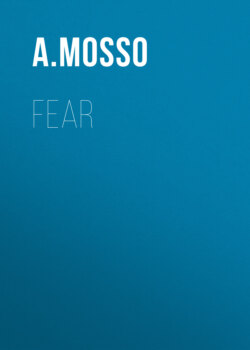Читать книгу Fear - A. Mosso - Страница 15
На сайте Литреса книга снята с продажи.
I
ОглавлениеTable of Contents
Until 1820 physiologists believed that all nerves had the same functions; that is, that all were sensory.
We can scarcely picture the confusion in the mind of anyone studying the nerves of the face when, besides those destined to the organs of smell, sight, and hearing, he would notice two other large nerves—the Trigeminus and Facialis—passing off separately from the brain and spinal marrow, and which, with a double ramification of filaments, cover all superficial and underlying parts of the face; and again, when he saw the three nerves of various origin which go to the tongue, the four which are distributed in the throat, and finally, in the midst of this net of nerves, thick bundles of fine filaments and ganglia of which the origin was untraceable.
It was an English physiologist, Charles Bell, who solved this problem by showing that the most important nerves of the face, with the exception of the special sensory nerves, are confined to two. If one of these nerves, called the trigeminal, be cut through, every trace of sensibility immediately disappears from the corresponding side of the face; if the other, the facial nerve, be severed, sensibility remains, but the face completely loses the power of movement, there is no longer any contraction of the muscles or change of expression in the face.
I quote Charles Bell’s own words, since these two simple experiments still form the base of the physiology of the nervous system.
'If we cut the division of the fifth nerve which goes to the lips of an ass, we deprive the lips of sensibility; so when the animal presses the lips to the ground, and against the oats lying there, it does not feel them, and consequently there is no effort made to gather them. If, on the other hand, we cut the seventh nerve where it goes to the lips, the animal feels the oats, but it can make no effort to gather them, the power of muscular motion being cut off by the division of the nerve.’[4]
The same takes place in the hand, the legs, and in all other parts of the body, which, according as the one or the other set of nerves is injured, feel but cannot move, or move and do not feel.
In the ordinary circumstances of life no one becomes aware of these two fundamental properties of the nervous system, or at least we do not reflect that there are two distinct apparatus: the nerves which make us feel, and the nerves which cause movement. The intimate connection between these in the nerve centres and at the surface of the body renders special methods necessary to separate them, and allow them to act independently of each other.
Claude Bernard, the greatest of French physiologists, and one of the most agreeable and successful authors who have ever popularised science, showed how these two elements may be dissociated by introducing certain poisons into the blood, which kill the finest ramifications of the nerves in the most inaccessible parts of the organism.
If one scratches the skin of a dog with a poisoned arrow, like those used in war by certain savage tribes of America, the animal succumbs in less than a quarter of an hour. This terrible poison, called curari, destroys the motor nerves, but produces no change in the intelligence, and the functions of the sensory nerves. The dog scarcely notices the slight puncture on the skin and continues to walk about the room; but in a short time the hind-legs become stiff, one can see that they no longer obey the will; the posterior part of the body sways and falls. The animal rises and stumbles; then the fore-legs fail and the dog stands still. If we call him, or pat him, he responds with movements of the head, the ears, the eyes, and by wagging his tail. Soon however he cannot lift his head and lies stretched out, breathing quietly, as though reposing at his ease. On being called, he moves his eyes and feebly wags his tail, without any manifestation of pain. At last the respiratory muscles cease to act and life ebbs out without a single convulsive movement, and for a few moments sensibility and intelligence are still distinguishable in the fixed and glassy eye. It is like a corpse that perceives and understands everything going on around it, without being able to move, retaining sentiment and will but having no means of manifesting them.
